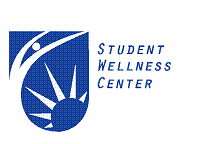As New York City College of Technology continues to monitor available information regarding H1N1—also known as swine flu--we wanted to provide you with an update of the most recent developments to help you make informed decisions about your health.
Recently, ten public schools in Queens and one in Brooklyn were closed for five days after the Department of Health documented unusually high and increasing levels of influenza-like illnesses amidst the student body and staff. Also, tragically, New York has documented its first fatality due to H1N1.
At this time, New York City College of Technology has received no reports of any documented cases of H1N1 from students, faculty, or staff. If you receive a diagnosis of H1N1, please alert Holly Burmeister, Director of the Student Wellness Center, as soon as possible. She can be reached at (718) 260-5914.
Symptoms of H1N1 include fever, cough, sore throat, body aches, headache, chills and fatigue. Some people have reported diarrhea and vomiting as well. Any New Yorker experiencing severe symptoms, such as difficulty breathing, should seek health care and treatment.
If you are already on campus and are experiencing any of the symptoms listed above, please come to the Student Wellness Center for assessment. We are located in Pearl 104 and are open Monday through Thursday, 9am-5pm. If you are at home and experiencing any of the symptoms listed above, do not come to campus. Stay home until symptoms subside for at least 24 hrs.
The Health Department advises any New Yorker who has flu symptoms and also has an underlying health condition such as asthma, pregnancy, emphysema or other lung disease or diabetes; a compromised immune system or cancer; to seek medical treatment. In addition, if an individual with such a medical condition has household or other close contact with someone with influenza, they should see their doctor to determine whether preventive medicine is needed. For students, staff, and household members of affected students and staff at schools which have been closed, those who have an underlying medical condition as stated above should also see their doctors to discuss the need for preventive medicine.
All New Yorkers should continue to follow the precautions listed below:
• Always cover your mouth when you cough or sneeze with a tissue, or cough into shoulder or sleeve. Do not cough or sneeze into bare hands. Promptly throw tissue in trash.
• Wash your hands often with soap and water or alcohol-based cleaners, especially after you cough or sneeze.
• Try to avoid close contact with sick people.
• If you experience any of the symptoms listed above, stay home from work or school until at least 24 hrs. after symptoms subside and limit contact with others to avoid infecting them.
In the rare instance that someone in your home becomes ill with H1N1, the CDC has issued guidelines to help you stay well, care for your loved one, and avoid further transmission of the virus. You may find this information at the following website: http://www.cdc.gov/swineflu/guidance_homecare.htm
Remain calm, stay alert to new information, and follow the common sense precautions detailed here and advised by the New York City Department of Health and the CDC.
For facts about influenza, and more information about H1N1, please visit the Department of Health and CDC websites. Some specific resources:
Facts about H1N1 and school closing updates
http://www.nyc.gov/html/doh/html/home/home.shtml
General information about H1N1
http://www.cdc.gov/swineflu/general_info.htm
New York State Department of Health has set up a 24-hour hotline to answer questions about H1N1: 800-808-1987.
The Student Wellness Center is available to answer questions about H1N1 and any other health-related matters. The Center can be reached at (718) 260-5910 and is located in Pearl 104. We will post further information as it becomes available.
Please continue to check the City Tech website for updated information.
Take Care--
Student Wellness Center
skip to main |
skip to sidebar

Why is Wellness So Important?
There's just no getting around it: academic success is built on a foundation of physical, emotional, and psychological wellness.
The staff of the Student Wellness Center at City Tech is committted to helping you achieve your academic goals and integrate healthy habits into your daily lives.
We hope you will visit often to learn of the latest student health news, get new information on exciting health events on campus, hear what other City Tech students are doing to promote good health, and share your ideas, questions, comments, and concerns.
And, visit us in person, too! The Student Wellness Center is open M,T,Th from 9:00am-5:00pm, W 9:00-6:00pm and we are located in Pearl 104. We can't wait to see you.
SWC Staff
The staff of the Student Wellness Center at City Tech is committted to helping you achieve your academic goals and integrate healthy habits into your daily lives.
We hope you will visit often to learn of the latest student health news, get new information on exciting health events on campus, hear what other City Tech students are doing to promote good health, and share your ideas, questions, comments, and concerns.
And, visit us in person, too! The Student Wellness Center is open M,T,Th from 9:00am-5:00pm, W 9:00-6:00pm and we are located in Pearl 104. We can't wait to see you.
SWC Staff
